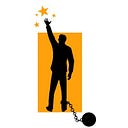Member-only story
Do you believe in second chances?
We are so much more than our worst mistakes
Whether it is politicians on the campaign trail advocating for criminal justice reform or policy makers deciding who to release from prison to control damage from the COVID-19 pandemic, people convicted of violent crimes are almost always excluded. (Actually, the reference is typically to “violent offenders,” as if it’s safe to assume the people themselves are violent — no matter how much time has passed since they were sentenced.) The problem with this myopic position is so many of these unfortunates (that includes me) have matured and evolved and could be making positive contributions to society, not to mention their families. Instead, they continue to rot away in prison, “thrown away” by society as incorrigible.
As soon as a person is convicted of a violent crime (which, it should be noted, doesn’t always mean physical harm occurred), the defendant becomes not just someone who committed a violent act; he or she is perceived as embodying the act. You become a murderer, robber, carjacker — a violent person. There is something gravely immoral about that.
To say that someone is intrinsically evil and incapable of changing flies in the face of every religious teaching, no matter what faith you practice.
